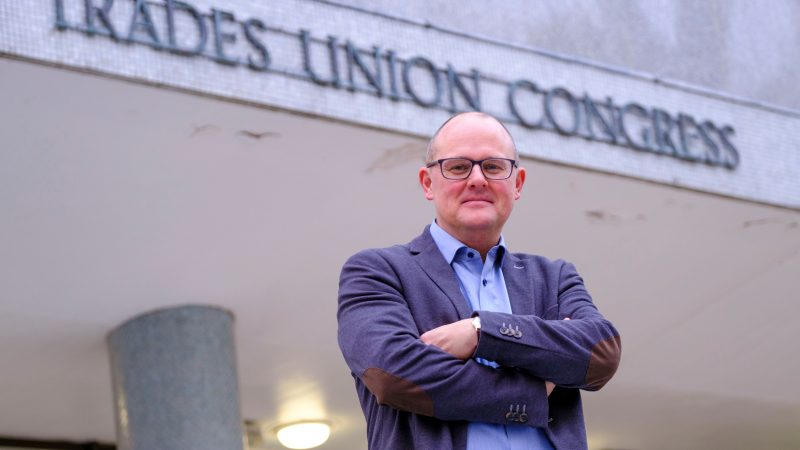
Paul Nowak has warned that the UK is “teetering on the brink of recession” and urged ministers to present a “credible plan” to boost jobs after analysis suggested that job numbers are contracting in 11 of the main 20 industry groups.
According to analysis from the TUC, released today, as many as 120,000 jobs were lost between March and June this year across the 11 sectors where employment was found to have fallen – with the largest decreases seen in accommodation and food, wholesale and retail and construction.
The research – based on experimental data from the Office for National Statistics – suggested that 34,000 jobs have been lost in the accommodation and food sectors. It found that 27,000 jobs may have disappeared in the wholesale and retail sectors, while the figure for the construction industry was 17,000.
The union body found that the total number of jobs across the economy rose by 30,000 between March and June but argued that an overall increase “shouldn’t mask the problems the majority of UK industries are facing”.
Commenting on the findings, the TUC general secretary declared that the government “needs to deliver strong, shared growth, rather than an economy that is stagnating or shrinking”.
He said: “Ministers must stop hiding behind the Bank of England and come up with a credible plan for boosting jobs and living standards. With the country teetering on the brink of recession, the last thing we need is another hike in interest rates.
“This will just heap further misery on households and businesses and put many thousands more jobs and livelihoods at risk. Setting us on course for another economic shock is reckless, not responsible.”
The TUC argued that “skyrocketing” interest rates have been a “key driver” behind the job losses, by increasing costs for businesses and reducing the amount people have to spend in their local economies.
The Bank of England is expected to again put up interest rates on Thursday, from 5% to 5.25%, in what would be a 14th consecutive rise in the cost of borrowing.
The Bank took a somewhat surprise move in June by raising interests rates half a percentage point to 5% – the highest level since 2008 – as part of efforts to tackle stubbornly high inflation.
The rate of inflation fell more than expected in June to 7.9%, which eased forecasts for how much the Bank would raise interest rates in the coming months.
Commenting on the inflation figures at the time, Shadow Chancellor Rachel Reeves stressed that prices were “still going up at staggering rates”, declaring: “Inflation has been persistently high and remains higher than our international peers. This is becoming a hallmark of Tory economic failure.”
Chancellor Jeremy Hunt argued that the government and the Bank had taken tough decisions to bring inflation down, adding: “We’re seeing the first fruits of that, but there’s a long way to go.”
The Treasury was approached for comment.



More from LabourList
Humza Yousaf woes deepen as Labour files no-confidence vote in government
‘History and poll leads suggest Labour can be bolder, even if it costs some votes’
Labour warned ‘ethical foreign policy’ inevitably sparks charge of ‘hypocrisy’